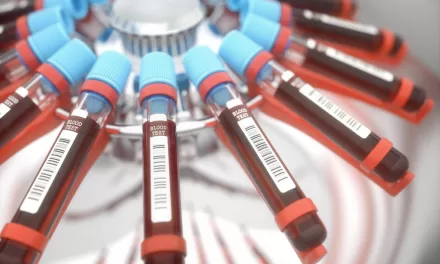For many young women, menopause may seem like a distant concern—something to think about when they’re much older. However, the reality is that menopause can occur earlier than expected, sometimes even in a woman’s 30s. If you’re under 40, this might seem like a far-off issue, but understanding menopause can help you better navigate the transition when it comes, whether for yourself or someone close to you. After all, menopause will affect half of the world’s population at some point.
Yet, despite its inevitability, many women feel unprepared for the changes associated with this life stage. A recent survey revealed that nearly 50% of women feel completely uninformed about menopause, and almost 95% weren’t taught about it in school. As a result, many lack the knowledge needed to manage menopause or understand the experiences of others going through it. Here’s what every young woman should know about menopause to prepare for the transition ahead.
1. What Exactly Is Menopause?
Menopause marks the end of a woman’s reproductive years. This happens when the ovaries stop releasing eggs, and hormone levels decline. Technically, menopause is diagnosed when a woman hasn’t had a period for 12 consecutive months. Menopause typically occurs between the ages of 45 and 55, though the exact timing can vary depending on several factors, including geography and lifestyle.
For example, in the UK, the average age of menopause is around 50. Factors such as diet, health, and lifestyle may influence this timing, though much about these variations remains unclear.
2. What Is Perimenopause—and How Is It Different from Menopause?
The term “menopause” refers to the final cessation of menstruation, but the journey toward menopause actually spans several stages. Perimenopause, the phase leading up to menopause, can begin in a woman’s 40s, or sometimes even in her 30s. During this time, hormone levels fluctuate, and menstrual cycles become irregular. Women may also experience symptoms like hot flashes and mood swings.
Perimenopause can last anywhere from a few months to several years—sometimes up to a decade. Once periods stop for a full 12 months, a woman is considered to have entered postmenopause, where menopause symptoms can continue, though often at a reduced intensity.
3. What Are the Symptoms of Menopause?
Menopause symptoms can vary greatly from woman to woman, but common symptoms include hot flashes, night sweats, fatigue, mood swings, and vaginal dryness. These symptoms typically begin during perimenopause and can persist for several years into postmenopause. The duration and severity of these symptoms can be influenced by genetics, lifestyle, and other factors.
Managing menopause symptoms often involves a combination of lifestyle changes and medical treatments. Exercise, a balanced diet, stress management, and avoiding smoking or excess alcohol can help alleviate symptoms. Additionally, hormone replacement therapy (HRT) is a popular treatment option, restoring estrogen and progesterone to levels seen before menopause to help reduce symptoms. There are also treatments for specific symptoms, such as vaginal estrogen for dryness or antidepressants for mood swings.
4. How Does the Body Change During Menopause?
Many women notice changes in their bodies as they approach menopause. One common concern is weight gain, particularly around the abdomen. While it might feel like menopause is the cause of this weight gain, research shows that it’s actually the natural aging process—slower metabolism and changes in lifestyle—that contributes to it. Hormonal shifts can also affect where fat is distributed on the body, with more fat accumulating around the abdomen after menopause, compared to the hips and thighs before.
While you can’t avoid the natural aging process, maintaining an active lifestyle and making healthy choices can help mitigate weight gain and support overall health. For some women, HRT can also help address some of the changes in body fat distribution that occur during menopause.
5. What About the Emotional Impact of Menopause?
Menopause can bring significant emotional and psychological changes. Many women experience a shift in identity, as they move from one life stage to the next. While some women may feel empowered by the transition, others struggle with feelings of loss or frustration as they adjust to their changing bodies.
Having a strong support system is crucial during this time. Community resources such as Menopause Cafes offer spaces for women to share experiences and reduce feelings of isolation. In addition, prioritizing self-care—whether through physical activity, mindfulness, or relaxation techniques—can help women maintain emotional and physical well-being.
While menopause may seem overwhelming, it doesn’t have to be. With proper knowledge and support, managing the physical and emotional changes of menopause can be much easier, making this inevitable transition a more manageable part of life.











